|
Home - Fixing Backs, Pain and Tightness with Structural Integration Free Booklets Menu Meditators' Performance Improvement Program Meditation Benefits Testimonials Structural Integration's Benefits for Yoga Yoga Testimonials Remove Tightness - Sit Stronger & Easier Structural Stretching & Hands-on How-to DVD Video Info |
|
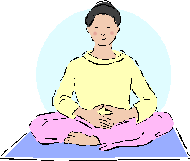 The Practice The Practice
of Physical Reality Part 1 - Non-Sectarian Breath Concentration & Focused Walking Meditation Instruction by a long time meditator who studied with experts. Who is also a Structural Integration Bodyworker. Zazen & Kinhin Instruction. Includes Stretching Tips for easier position. A very well established and widely practiced technique for increasing our physical, mental & emotional well being, regardless of what "religion" or "spiritual practice" you happen to do. Religious practice is another subject entirely. Doing this technique also helps people get more out of my Bodywork, Stretching & Netherton-Reichian Release Processing. by Lou Ryoshin Gross BSEE School Certified Master Postural Integrator since 1983 Founder & Director of The Institute for Enhanced Performance 27 years successful Bodywork experience - Meditator since 1969 Studied Meditation under Taizan Maezumi Roshi, one of the best Zen Masters of the latter 20th Century For more information & free consultations, call 321 726 9083 louisryoshin@yahoo.com
|
|
|
Other articles
on this website serve to educate meditators about some of the Bodywork
aspect.
Some long time
meditators may even find my zazen and kinhin (walking concentration or
paying attention meditation) instruction enjoyable.
And I have included some tips in Parts 2 and 3, on how to stretch for
easier and better sitting.
Awareness Through
Stretching --- & --- In teaching how to do Zen "paying attention" breath concentration meditation, known as zazen (zah-zen), we first teach sitting down zazen, then kinhin (kin hin) or "paying attention" walking zazen, and then point out how you can practice extending this paying attention, calmer and more focused mind into all your daily life activities. In teaching
sitting down zazen, we divide the instruction into three parts. Each part
contributes an amount of power to your concentration. And as your
concentration practice continues, you will notice how the benefits stay
with you in your daily life. We train the body-mind with exercise
just as we do physical exercise and get stronger in that way.
Prior to giving the "technicalities," which explain how to generate the most power, we usually bring up the issue of "intention." Why are YOU interested in learning about how to do this zazen, or zen concentration meditation? Answer that question now, preferably in complete sentences, and out loud! Take whatever comes out first, however it is, and then you can rephrase it. See what your mind, heart and/or soul says. It can be interesting, and helpful. Once you have stated an intention, whether it's to calm your mind, be more creative, improve your health, increase your power of concentration, attention, focus or awareness, or even realize the Buddha Way, you'll have an out loud reason for paying attention and trying to do it as well as you can. Actually, intention, whether we're aware of it or not, is the aiming mechanism of our actions. This is true for things in general, and in a subtle but very real way, it is true for every single moment of our physical existence. So, since zazen is about making the best use of our body-minds in physical reality, it helps a lot to aim right at the bulls eye, from the very beginning...and then again, each time we practice. A little experience and some common sense will then lead you to conclude that since reality is always happening, intention ought to be precisely focused at every instant of our lives. But when we look at the sloppiness of our wandering little minds, we have to acknowledge how we get caught up in all our emotional dramas and distracted by the least little sensory movement. We really aren't in charge of our intentions most of the time. So we really aren't in charge of our lives most of the time; we are just reacted. The practice of zazen is designed to overcome this shortcoming. And it's a good idea to acknowledge one's own level of shortcoming, but not be overwhelmed and discouraged by it. (And it can become very discouraging when you see how little you can do compared to what you really want to do.) The lack of seeing this shortcoming, and the inability to acknowledge it honestly, are part of the character trait we call arrogance. And an extension of arrogance is ignorance. But don't worry. Zazen takes care of arrogance, too, and is, in fact, directly aimed at eliminating ignorance.
You very well will miss things. And the increased power of awareness that you develop when you do notice will sharpen your concentration. Intention, awareness and concentration are three of the very major aspects of Zen practice. So you should be sincere and try to practice it from the start, when you're first reading how to do it. (This is what we call "Beginner's Mind." It's very healthy to practice with this Beginner's Mind. It keeps arrogance at bay and lets us learn and accomplish more.) As you continue to practice, you will improve your level of "doing" it at the same time you are mentally "learning about" it. This is also a major aspect of Zen practice. Errors of commission and errors of omission are common, (maybe even universal), so just keep going back to paying attention to the best of your abilities. And
remember, while others will help you, you'll get out of it exactly what
you put into it, including your so-called errors. We always improve with
time. So the better you try, the better you'll get, and the better you,
personally, will feel about your accomplishment.
|
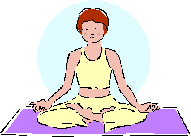
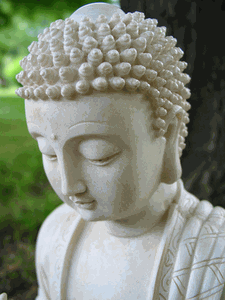

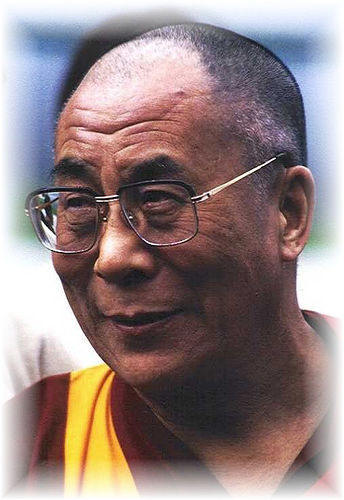
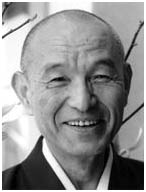
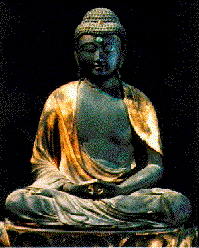
 Next, lets
look at "attention." Try to have the attitude, that in reading this
particular set of instructions, it is meant for YOU in particular, and no
one else. Even if you are reading it out loud to others, all the words
and sentences are important TO YOU. No one else inside your own mind will
be listening to the words you miss. So there will be no one to help you.
What you get out of the reading is what you get. So you have to concentrate
in order to maintain your continuous attention. And when you notice
you've missed something, go back over it, and use your power of attention
with more focus.
Next, lets
look at "attention." Try to have the attitude, that in reading this
particular set of instructions, it is meant for YOU in particular, and no
one else. Even if you are reading it out loud to others, all the words
and sentences are important TO YOU. No one else inside your own mind will
be listening to the words you miss. So there will be no one to help you.
What you get out of the reading is what you get. So you have to concentrate
in order to maintain your continuous attention. And when you notice
you've missed something, go back over it, and use your power of attention
with more focus.